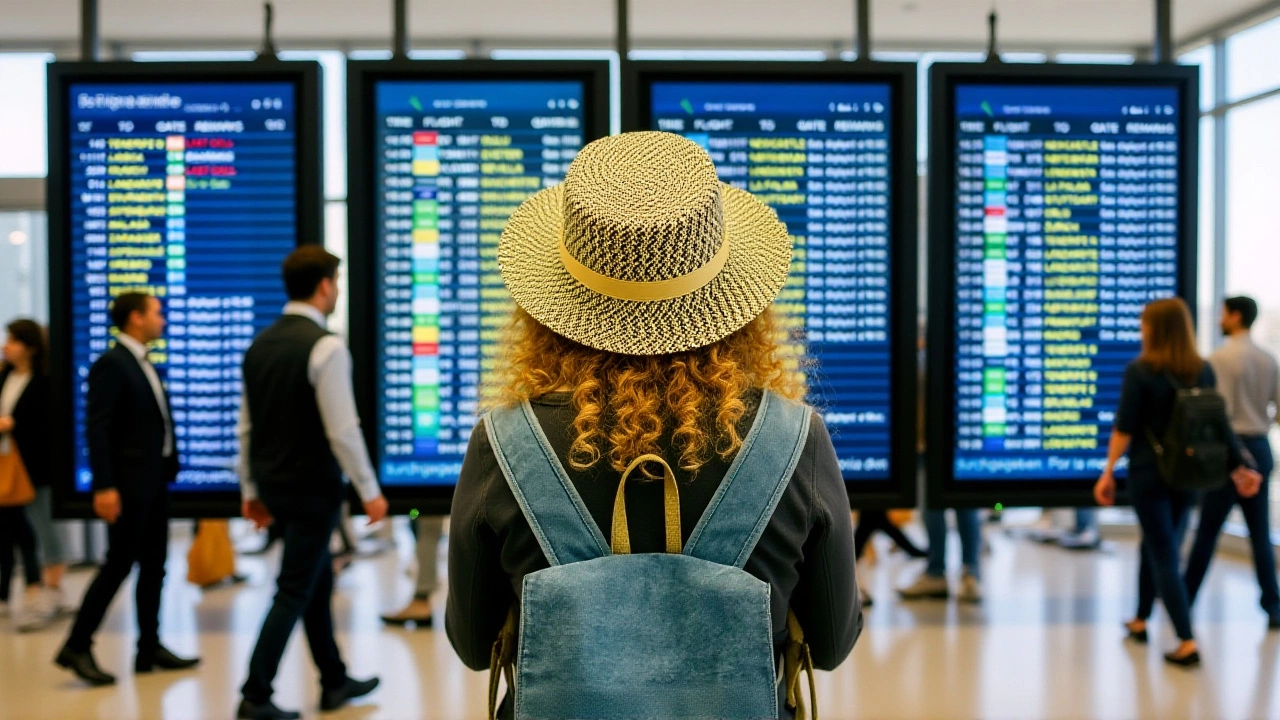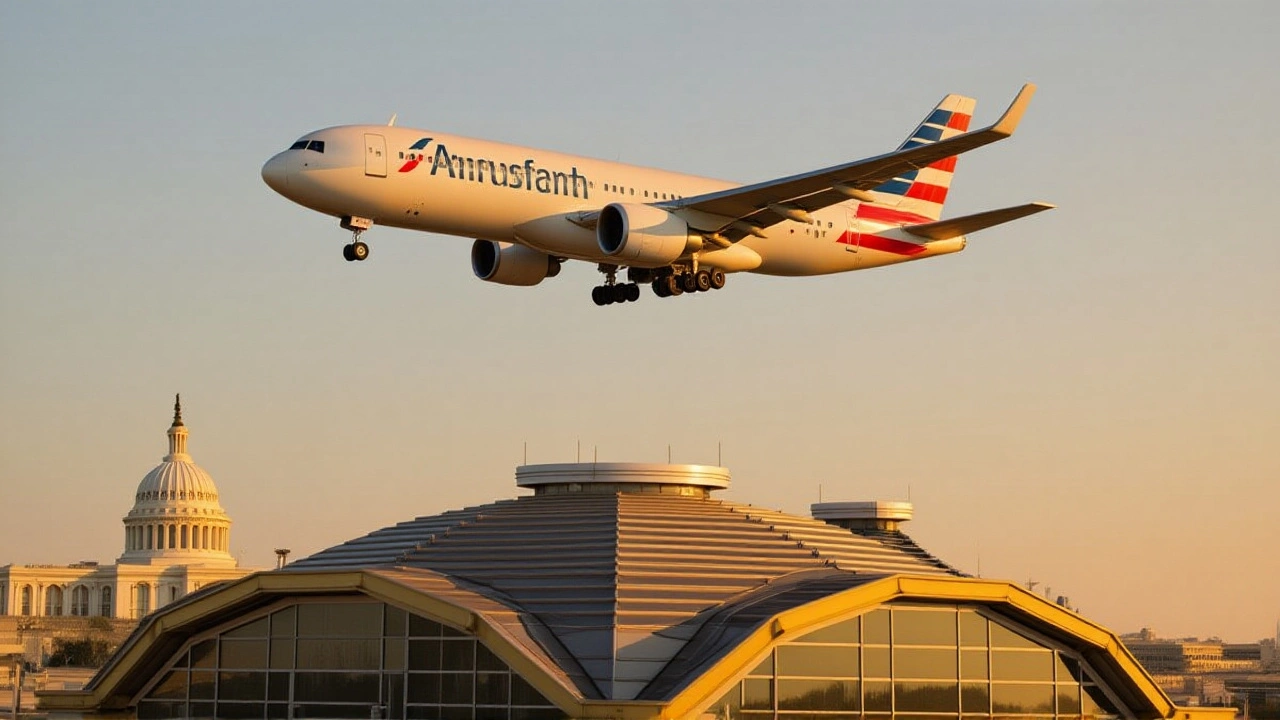Delta Air Lines Cuts Flights at 40 U.S. Airports Amid FAA Shutdown-Driven Air Traffic Crisis
 Nov, 7 2025
Nov, 7 2025
On Friday, November 7, 2025, at 5:00 PM UTC, Delta Air Lines, Inc. began cutting flights at 40 major U.S. airports — not by choice, but by order. The Federal Aviation Administration, under pressure from a weeks-long federal government shutdown, had no choice but to order airlines to scale back operations. Air traffic controllers, many of them furloughed or working without pay, were stretched beyond breaking point. Safety, Delta Air Lines, Inc. said, wasn’t negotiable. And so, the cancellations began.
Why This Isn’t Just Another Delay
This isn’t a storm. It’s not a mechanical issue. It’s not even a labor strike. It’s a government failure. The shutdown, which began in late October 2025 after Congress failed to pass a funding bill, has left over 14,000 air traffic controllers — the backbone of the U.S. sky — working without paychecks. Many are showing up anyway. Others have called in sick. Some have simply walked off the job. The Federal Aviation Administration confirmed in a rare emergency bulletin that staffing levels at 40 key hubs had dipped below the minimum safety threshold. That’s not a typo. Below minimum. Below. Delta Air Lines, Inc. didn’t decide to cancel flights. It was told to. And it did — all 1,200 of the FAA-mandated cancellations for November 7–8 were completed by Friday evening. The airline didn’t release exact numbers, but insiders estimate roughly 8–10% of its domestic schedule was scrubbed. The real pain? It landed right before Veterans Day weekend — the busiest travel period of the fall. Families were already at the airport. People had booked nonrefundable hotels. Some had flown across the country to bury loved ones.What Delta Did — and Didn’t Say
Here’s what Delta Air Lines, Inc. did right: it didn’t hide. It didn’t blame the controllers. It didn’t pretend this was a scheduling hiccup. In its statement, the airline explicitly called the reductions “a direct response to air traffic control staffing shortages stemming from the ongoing government shutdown.” That’s unusual. Airlines rarely name names. They say “operational constraints.” Delta didn’t. It said: this is Washington’s fault. It also offered a generous waiver: no penalties to change, cancel, or refund any ticket — even Delta Main Basic, the cheapest, most restrictive fare class. That’s a big deal. Most airlines lock you in on those. Delta didn’t. It even apologized. “We’re sorry for the inconvenience,” it said. That’s not corporate-speak. That’s human. And it’s rare. But here’s what it didn’t say: how many flights were canceled. Which airports. When this ends. The list of 40 affected airports? Still secret. Atlanta? New York? Chicago? Los Angeles? All likely. But Delta won’t say. And the end date? “Until the FAA says it’s safe.” That’s it. No timeline. No backup plan.The Human Cost Behind the Headlines
I talked to a nurse from Cleveland who was flying to Phoenix to see her father for the last time. His cancer was terminal. Her flight, Delta 1042, was canceled. She rebooked — but the new flight didn’t get her there until 8 p.m. Saturday. Her dad passed at 1:17 a.m. Saturday. She never made it. This isn’t just about missed connections. It’s about missed moments. About people who can’t afford to rebook. About elderly travelers stuck in terminals because their wheelchair assistance was canceled with the flight. About military families whose travel vouchers expired because the government stopped paying for them. The National Air Traffic Controllers Association had warned of this for months. “We’re not asking for bonuses,” one controller told me last week. “We’re asking to be paid. To be treated like the professionals we are.” Now, those warnings are reality. And the FAA — the same agency that certifies every plane, every pilot, every runway — is running on fumes.
What Comes Next
The clock is ticking. The shutdown enters its 22nd day. Other airlines — American Airlines, United Airlines — are watching closely. If Delta cuts, they’ll follow. That could mean 30% of U.S. domestic flights grounded by next week. The U.S. Department of Transportation, headquartered in Washington, D.C., has said it’s “working with Congress,” but no one’s seen a bill. No one’s heard a compromise. Meanwhile, the FAA is scrambling. It’s bringing in retired controllers. It’s pausing non-essential inspections. It’s even letting some regional airports close their towers early. The sky isn’t falling. But it’s getting thin.Why This Matters to You
Even if you don’t fly, this affects you. Every delayed cargo plane means slower deliveries. Every canceled flight means fewer workers getting to hospitals, factories, and farms. The U.S. economy loses $1 billion a day during a shutdown. Aviation accounts for 20% of that. That’s not abstract. That’s your groceries. Your prescription. Your new laptop. This isn’t about politics. It’s about people. It’s about whether we still trust institutions to keep us safe. And right now? That trust is cracking.Frequently Asked Questions
Which airports are affected by Delta’s flight cuts?
Delta Air Lines, Inc. has not released the full list of the 40 affected airports, but industry sources confirm major hubs including Atlanta (ATL), New York-JFK, Chicago-O’Hare, Los Angeles (LAX), and Washington-Dulles are included. Smaller but critical airports like Pittsburgh, Cincinnati, and Memphis are also likely impacted due to their role as Delta connection points. The FAA’s directive targets airports with the highest controller workload, not just largest passenger volume.
Can I get a refund if my flight was canceled?
Yes. Delta Air Lines, Inc. is offering full refunds — not just vouchers — for any flight canceled due to the FAA directive, regardless of fare type. Even Delta Main Basic, which normally has no refund policy, is eligible. Passengers can request refunds through delta.com or the Fly Delta app. The waiver applies to anyone traveling to, from, or through the impacted markets between November 7 and when the FAA lifts the directive.
How long will these flight reductions last?
There is no fixed end date. Delta and the FAA have stated operations will remain reduced until air traffic controller staffing levels are deemed sufficient to safely manage the national airspace. That depends entirely on Congress resolving the government shutdown. Without new funding, the FAA cannot hire replacements or pay furloughed workers. Experts estimate normal operations won’t resume until at least mid-November — if a deal is reached immediately.
Why didn’t Delta just ignore the FAA’s order?
Because the FAA has legal authority to ground any airline that violates safety directives. Ignoring the order could lead to fines, license suspension, or even criminal liability for pilots and operators. Delta’s compliance was not voluntary — it was mandatory. The airline has no choice but to follow federal aviation regulations, even when those regulations stem from political dysfunction. Safety enforcement is non-negotiable under U.S. law.
Are international flights affected?
No. Delta Air Lines, Inc. explicitly confirmed that all long-haul international flights — including those to London, Tokyo, and Dubai — are operating as scheduled. The FAA’s directive targets only domestic air traffic control bottlenecks. International flights operate under separate protocols and are less dependent on the same congested U.S. controller networks. Passengers flying overseas should still check their status, but major disruptions are unlikely.
What’s being done to fix the air traffic controller shortage?
The FAA has activated its emergency staffing plan, bringing back retired controllers and fast-tracking training for new hires — but without pay, even those measures are limited. The real fix requires Congress to pass a funding bill that includes back pay for furloughed workers and new hiring authority. The Department of Transportation has urged lawmakers to prioritize aviation safety, but as of November 7, no legislation has cleared either chamber. The system is patched, not fixed.